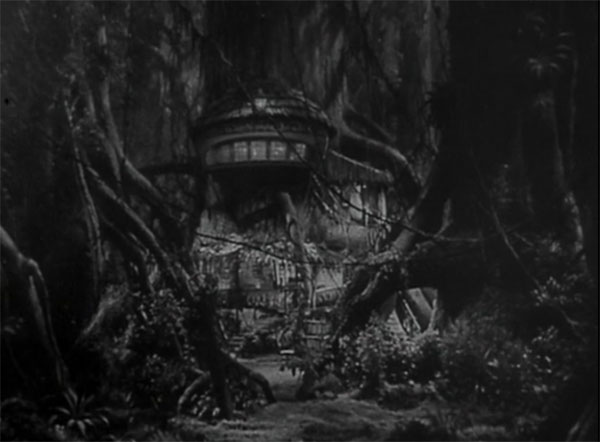
Adapted from the 1812 novel by Swiss author Johann David Wyss, this 1940 film was not a Disney production. RKO released the black-and-white film, and there are unconfirmed reports (from what I could gather) that Disney purchased the rights to avoid comparisons between their adaptation and this movie. Regardless of the exact history, you can now watch them both on Disney Plus. From what I can remember about the Disney film, there are many differences between the two. It’s definitely not as weird for starters.
London is the Worst
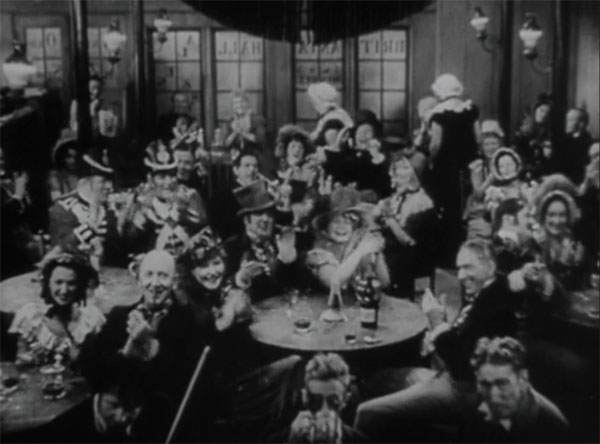
I’m starting to wonder how many films in this series will begin with the shot of a book. Swiss Family Robinson follows that trend with a girl handing the title to her dad to read it. We’re just sitting by the fire and listening to this tale right along with her. A narrator explains the situation; it is 1813, and the threat of Napoleon is real. The awful people of London are just partying and not caring about the future. One bold man, William Robinson, is ready to take a stand for decent living…or something like that.
Thomas Mitchell plays the patriarch, whose family moved from Switzerland and found wealth making clocks and watches. His boys are safe and secure, but William believes they’re too soft and shallow. Without consulting his wife Elizabeth (Edna Best) or his children, he decides they must uproot everything and travel by boat to Australia. The insane choice relates back to William’s childhood where he didn’t have any money. This is just the beginning of his unfortunate ideas.
To be fair, the kids are pretty annoying. Fritz is obsessed with Napoloeon, and Jack is marrying solely for status. Ernest is a genius and the exception, and all we know about young Francis is that he doesn’t talk. That still doesn’t excuse the choice from William, especially without talking with Elizabeth. Couldn’t they find a different option and just start some hobbies? Traveling across the world feels like an extreme idea, and it predictably falls apart when a storm wrecks their ship.
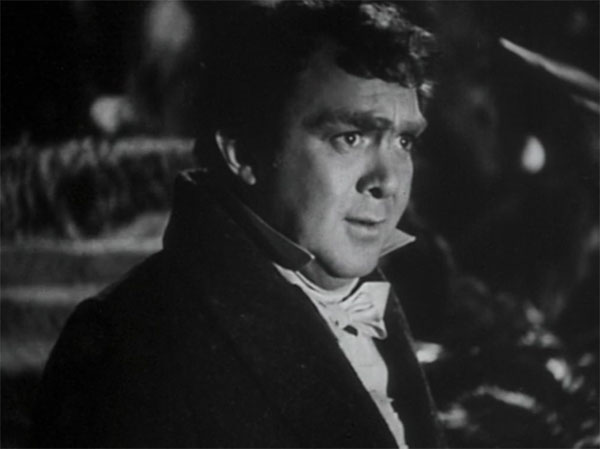
William Robinson, Mad Patriarch
Before we go any further, I have to talk about William. He consistently makes the wrong choice and justifies his moves in weird ways. These decisions would make sense if the movie presented him as the villain. Instead, William is treated like the hero by the end. Even for 1940, it’s a head-scratching choice to give him the victory. Mitchell portrays William like a crazy person, but the film doesn’t seem to agree.
Let’s review some of William’s manipulative, sexist, and evil moves:
- William uproots the family’s life in London without consulting anyone to make them tougher.
- After the shipwreck, William is thrilled by the adventure of living on an island and doesn’t care if they’re rescued.
- William ignores that his wife is miserable and doesn’t even realize it because he’s already focused on next year’s harvest.
- After Elizabeth puts her foot down and he starts building a boat, William believes the ship’s destruction is from “God’s lightning“.
- During this ordeal, William says it was the first time in his life that he’s been proud of his sons.
This short list can’t do justice to how far William lives inside his own head. His midlife crisis involves wanting to escape to a world of adventure. The problem is that he brings five others along for his lark without their consent. William’s sexism and feelings of superiority dismiss ideas that don’t fit with this plan. Plus, he’s completely nuts.
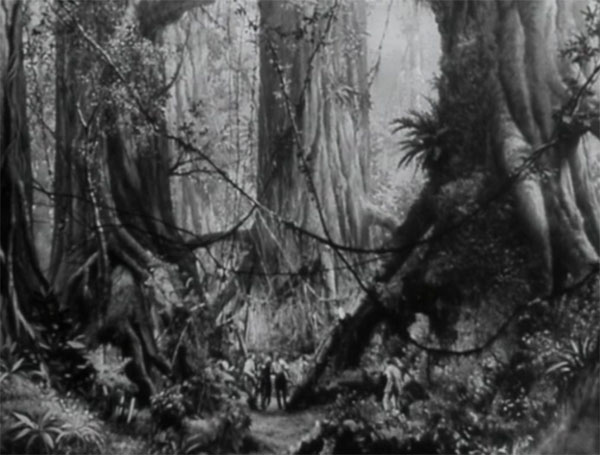
An Undiscovered Island
My hazy memory of Disney’s 1960 adaptation includes the fun of living in an inventive tree house. As a kid, there was an allure to living in such a cool environment. That vibe is mostly absent in this version, though the scale remains impressive. It received an Oscar nomination for Best Special Effects, and that makes sense given the era. The massive backgrounds make the island believable, especially with the long shots. The interior scenes do feel more constrictive and obvious shoot at a studio.
Scenes with kids riding a giant turtle and meeting an ostrich bring a lighter touch that’s definitely needed. We can only spend so much time with crazy William. While rafting back to the ship to gather supplies, the boys rope a turtle to help pull them. Predictably, William is lost in his own excitement and doesn’t even notice. These scenes include some impressive rear-projection shots of the approaching storms.
The effects are shaky at times, however. A memorable scene near the end involves an spider attack on Ernst. It’s supposed to be the film’s climax, but instead it just draws a big laugh. Ernst and his little brother Francis wander into a massive spider web and don’t see the obvious danger. The spider effect is, shall we say, not believable. It kills a possibly tense scene and just looks ridiculous. Finally, a weird scene appears to show Ernst die in bed and then is undercut by dialogue a moment later. It should be a key moment for William, but we’re still thinking about the ridiculous spider.
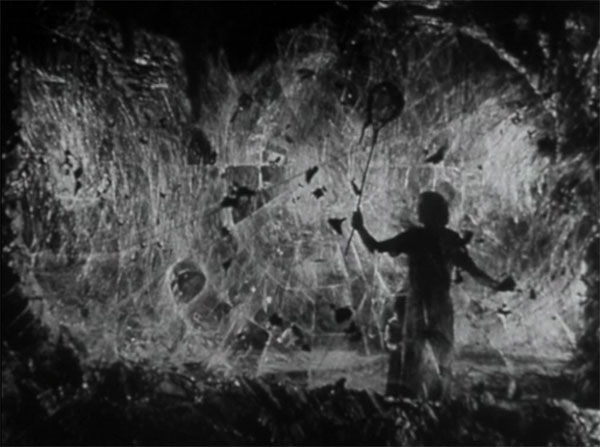
A Forgotten Adaptation
Swiss Family Robinson was unavailable to watch for many years, so its release on Disney Plus is a good thing. However, I wouldn’t place it on the top of your list unless you’re a completist or really love the 1960 version. Despite being much shorter at 93 minutes, this adaptation drags a lot. The pacing is strange with time spent on less essential scenes while big moments fly by. The technical side may interest you, but the story and characters are hugely problematic.
The final scenes paint William as the hero, presenting the “father knows best” idea. It’s a terribly sexist misreading of the events on the island. The family got stronger, but they also were extremely lucky and survived out of necessity. The movie betrays what the others accomplished by making William the ultimate victor. It’s not good.
What do you think about this version of Swiss Family Robinson? Leave your comments below!
This post contains affiliate links. Making any purchase through those links supports this site. See full disclosure.



Leave a Reply